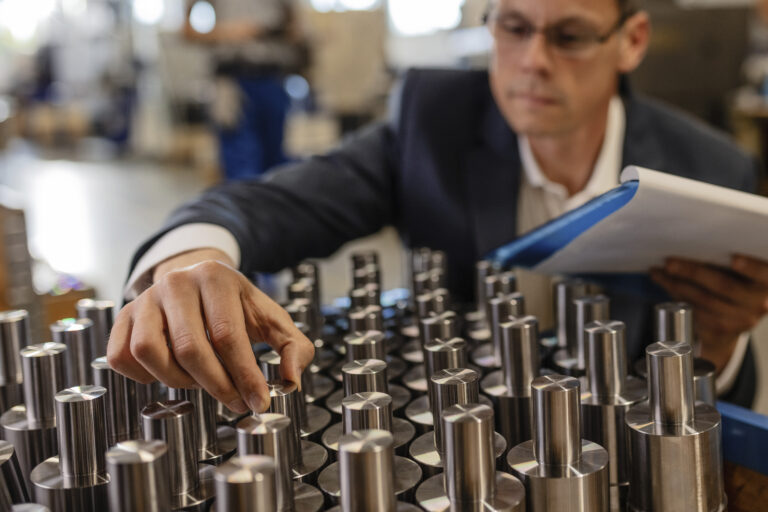In the world of precision machining, choosing the right material is just as important as the technology employed. Among the most common options, we find carbon steels—a highly versatile family of materials used in countless industries thanks to their strength, machinability, and competitive cost.
In this article, we explain what carbon steels are, how they are classified, and why they are a frequent choice in the machining of industrial parts.
What Are Carbon Steels?
Carbon steel is an alloy composed mainly of iron and carbon, with a carbon content that can range between 0.05% and 2%.
The proportion of carbon in the mix determines the final properties of the material: hardness, strength, ductility, or ease of machining.
Types of Carbon Steels
Depending on their carbon content, carbon steels are divided into three main categories:
Low-carbon steels (0.05% – 0.25%)
The most ductile and the easiest to machine. They are used for parts that require good weldability and are not subject to heavy loads, such as screws, nuts, or automotive components.
Medium-carbon steels (0.25% – 0.60%)
They have greater hardness and mechanical strength. Commonly used in gears, shafts, and parts subject to moderate stresses.
High-carbon steels (0.60% – 1.50%)
They offer excellent wear resistance but are more difficult to machine. Used for cutting tools, springs, and parts requiring surface hardness.
Advantages of Carbon Steels in Machining
Choosing carbon steels for manufacturing parts provides several benefits:
- Versatility: covers a wide range of applications depending on carbon content.
- Competitive cost: generally more affordable than special alloys.
- Machinability: especially good in low- and medium-carbon steels.
- Mechanical strength: enables the production of robust, durable parts.
- Availability: a widely used material, easy to obtain in different formats (bars, sheets, profiles).
Industrial Applications
Carbon steels are found across multiple industries:
- Automotive: shafts, screws, nuts, and structural components.
- Industrial machinery: gears, pinions, and wear-prone elements.
- Construction: beams, profiles, and reinforcement parts.
- Railway: transmission components and safety parts.
- Tools: blades, springs, and cutting tools.
Carbon Steels at MSJ Technology
At MSJ Technology, we work with different types of carbon steels, always selecting the most suitable one depending on the application of the part.
Our technical team analyzes the project requirements to ensure:
- the selection of the optimal material,
- precision machining with minimal tolerances,
- the durability and strength required in each sector.
Carbon steels are one of the most widely used options in industrial machining thanks to their balance between cost, strength, and versatility.
At MSJ Technology, based in Barcelona, we provide carbon steel machining solutions tailored to each client’s needs—from prototypes to large series for export.
Want to learn more about carbon steel machining?
Visit msjtechnology.com and discover how we can support your next project.
📞 +34 93 655 05 35
✉️ info@msjtechnology.com

